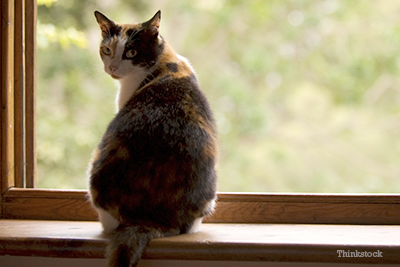 Do cats get heartworms?
Do cats get heartworms?
Most dog guardians are probably aware of a parasitic disease caused by heartworms. Unfortunately, a lot of cat guardians don’t realize that cats get heartworm disease too. The same mosquitoes that transmit the parasitic worms to dogs can transmit them to cats; however, there are a lot of differences between heartworms in dogs and in cats, and sadly these differences often work to your cat’s disadvantage.
The differences between heartworm in dogs and cats
- According to the Companion Animal Council, while studies suggest that cats get infected with immature worms at a comparable rate to dogs. Cats develop mature, adult worms only about 10% as often as dogs, under similar conditions.
- The Heartworm Society says that when cats do develop adult worms, they often only have 1-2 worms, compared to dogs that can end up with much higher numbers of worms. HOWEVER just 1-2 adult worms can still cause serious illness in a cat. Immature worms and your cat’s own immune response against them can also cause serious illness (most notably heartworm associated respiratory disease or HARD) and sudden death.
- Antigen tests on blood samples from cats, which identify the presence of adult worms, should be paired with antibody tests to help determine if a cat’s clinical signs could be due to heartworm disease. Additional diagnostic tests, like a complete blood count, radiographs or an echocardiogram might also be needed.
- There is no approved medical treatment to clear heartworm infection in cats. The only medical option is the symptomatic treatment of the clinical signs of the disease.
Does your cat need heartworm prevention?
The short answer is, “Yes.”
That’s because preventing a disease is always better than treating one. And in the case of heartworm disease in cats, there IS NO TREATMENT. So, absolutely the best thing to do is to prevent the infection in the first place. Also consider that heartworm disease has been diagnosed in all 50 states in the U.S. And being an indoor cat, without exposure to other animals, doesn’t protect your cat. It only takes one indoor mosquito to put your cat at risk. In fact, according to the Companion Animal Parasite Council, studies have shown that 25 to 30% of heartworm-infected cats were characterized by their guardians as “strictly” indoor cats.
Luckily, in spite of all of the differences, the essential thing your cat and your dog do have in common is that you can still protect your cat from heartworm infection, just like you protect your dog: with the year round administration or application of appropriate heartworm prevention products.
So be sure to talk to your veterinarian about getting your cat started on heartworm prevention.
If you have any questions or concerns, you should always visit or call your veterinarian -- they are your best resource to ensure the health and well-being of your pets.
